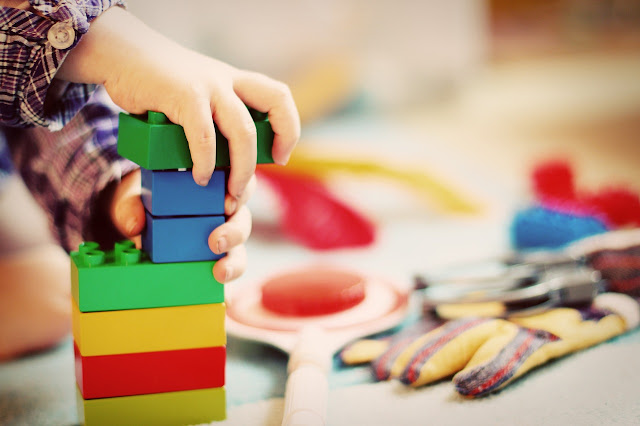Playtime Power-Ups: How Playtime Shapes Your Little Einstein's.
Play is often viewed as a child's natural instinct. It is not just an idle activity; rather, it plays a vital role in a child's cognitive development. From infancy to early childhood, play provides a foundation for the development of essential cognitive skills that lay the groundwork for future learning and success. This article explores the significance of play in a child's cognitive development and why it should be encouraged. Let's look at how playtime power-ups and shapes your little Einstein's.
Enhancing Brain Development
Play serves as a crucial stimulus for brain development in
children. When engaged in play, children's brains are actively involved in creating
new neural connections, strengthening existing ones, and refining cognitive
abilities. Whether it's building blocks, imaginative play, or solving puzzles,
these activities stimulate various areas of the brain responsible for
problem-solving, critical thinking, creativity, and memory.
Promoting Problem-Solving and Critical Thinking Skills
Play provides children with opportunities to encounter and
solve problems in a safe and supportive environment. Through play, children
learn to think critically, analyze situations, and develop problem-solving
strategies. Whether it's figuring out how to fit puzzle pieces together or
constructing a tower with blocks, children engage in trial and error,
experimenting with different approaches until they achieve their desired
outcome. This process fosters the development of logical reasoning, analytical
skills, and the ability to think flexibly.
Encouraging Creativity and Imagination
Whether children are engaging in pretend play, storytelling,
or engaging with art materials, play nurtures their ability to think
abstractly, explore possibilities, and invent new ideas. By assuming different
roles and scenarios, children develop empathy, emotional intelligence, and the
ability to see things from various perspectives, all of which contribute to
their cognitive growth.
Improving Language and Communication Skills
Play serves as a powerful medium for language acquisition
and development. When children engage in play, they engage in conversations,
negotiate roles, and share ideas with peers or caregivers. These interactions
provide opportunities to practice language skills, expand vocabulary, and
improve communication abilities. Additionally, imaginative play encourages
storytelling, fostering narrative skills and promoting the understanding of
cause-and-effect relationships.
Developing Social Skills and Emotional Intelligence
Play facilitates the development of essential social skills
and emotional intelligence in children. Through play, children learn to take
turns, cooperate, negotiate, and resolve conflicts. They learn to understand
and regulate their emotions, empathize with others, and develop self-control.
These social and emotional skills are not only crucial for their cognitive
development but also for building positive relationships and navigating various
social situations throughout life.
Play is far more than just a recreational activity for children; it is a powerful tool for cognitive development. By engaging in play, children develop essential cognitive skills, including problem-solving, critical thinking, creativity, and language abilities.
Moreover, safe indoor play areas like Jump N Play newest play area in Mulund in Central Mumbai, are a great way to indulge your little ones in play time while developing their social skills, emotional intelligence, and enhances brain development. Parents, caregivers, and educators should recognize the importance of play in a child's life and provide ample opportunities for them to engage in various types of play.
Name of Play Area # Jump N Play
Address # Office No 125, G Wing, Marathon Monte Plaza, Above Achija, Asha Nagar, Mulund West, Mumbai- 400080
Call # 6357574646 for bookings.




Comments
Post a Comment